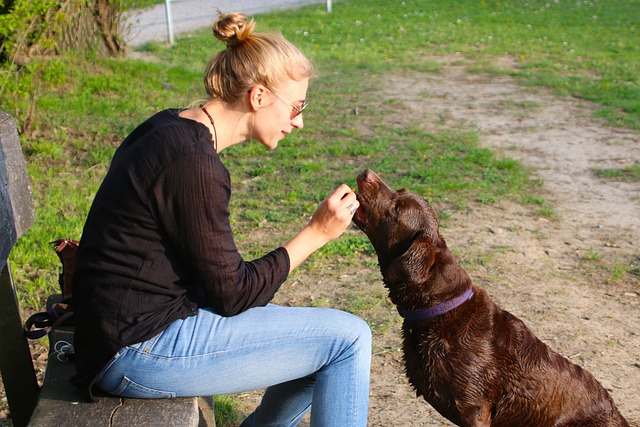Let’s get one thing straight – dog training isn’t about creating some robotic, perfectly behaved pup that obeys your every command like a furry soldier. If that’s your goal, you’re in the wrong place. Here, it’s all about building a real connection with your dog, the kind where both of you can actually enjoy life together, even when things get messy (which, let’s be honest, they will).

For all dog owners, training plays a crucial role in establishing trust and understanding. It helps you communicate more clearly with your dog and gives them the confidence to handle the world around them. But if you’ve got a reactive dog, training goes from “important” to “absolutely necessary.” Trust me, it’s not just a matter of teaching them to behave – it’s a literal lifeline for both of you.
Humans have been selectively breeding dogs for hundreds of years to enhance specific breed traits. Border collies, for example, are genetically predisposed to eye, stalk, and chase. If they don’t have an outlet for that behaviour, they will find their own, often herding cars!
Why Training is a Game-Changer for Reactive Dogs
If your dog’s reactive, you already know that walking them can sometimes feel like navigating a minefield. One wrong move (or one poorly-timed squirrel sighting), and boom – all hell breaks loose. This is where training comes in. It gives your dog the structure and predictability they desperately need in a world that often feels chaotic and overwhelming. We’re not just trying to “fix” their behaviour; we’re offering them a new way to respond that doesn’t involve freaking out at every moving object.
With practice, these new behaviours start to take over, replacing the barking, lunging, and general meltdown moments with calm responses. Yes, it’s possible! Suddenly, those dreaded walks become less like an extreme sport and more like… well, walking. Imagine that.
Building Mental Wellbeing
Training doesn’t just work wonders on your dog’s behaviour – it’s also great for their mental health. Yep, dogs have mental health too. Reactive dogs, in particular, can get overwhelmed quickly. By teaching them skills through training, we give them the tools to feel more secure and less stressed.
Think of it like this: when you give your dog clear instructions, it’s like providing a map in a city they find scary. Instead of flailing around, unsure of what to do, they follow your lead. This mental stimulation also keeps their brain busy, which can lower anxiety and help them focus on something productive (rather than, say, barking at a leaf blowing by).
Strengthening Your Bond
Here’s the kicker: training doesn’t just help your dog; it helps you. The bond between you and your dog gets stronger with every session. When your dog knows what’s expected of them, misunderstandings decrease, and you both become more in tune with each other. For reactive dog owners, this bond is everything. The more you train together, the better you’ll be at reading your dog’s signals, and the more they’ll trust you to guide them through tricky situations.

It’s about working as a team. They don’t have to face their triggers alone anymore, because you’ve got their back. And that’s the beauty of it – you’re helping them feel safe and confident, and in return, they trust you more deeply. That’s the dream, isn’t it?
Training is About Thriving, Not Just Behaving
If there’s one thing I want you to take away from this, it’s that training isn’t about making your dog “behave.” It’s about helping them thrive, giving them the tools to navigate life confidently, and creating a relationship built on trust and mutual respect. Whether your dog is reactive or not, training will make life better for both of you.
So, every time you teach your dog a new skill or practice those turns on a walk, remember: you’re not just teaching them to respond to cues. You’re helping them feel secure, supported, and ready to take on the world. And honestly, isn’t that what we all want?
